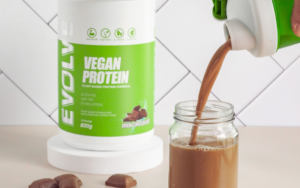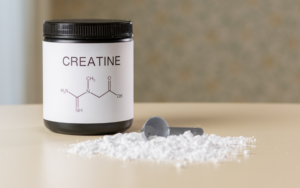In the world of protein supplements, two primary contenders dominate the market: whey protein and plant-based protein. Each offers a unique set of benefits and caters to different dietary preferences. This comparison will help you decide which one suits your needs best.
Table of Contents
Comparison chart
Before we delve into the details, here’s a quick overview of the key points we’ll explore in this comparison:
| Aspect | Whey Protein | Plant-Based Protein |
|---|---|---|
| Source | Animal-based (from milk) | Plant-based (pea, rice, hemp, etc.) |
| Protein Content | High (typically 90% or more) | Varies (usually 70-85%) |
| Digestibility | Very high and quickly absorbed | Generally good, but may vary by source |
| Dietary Restrictions | Unsuitable for vegans or lactose-intolerant individuals | Suitable for vegans and those with lactose intolerance |
| Amino Acid Profile | Complete with all essential amino acids | Varies by source, may lack some amino acids |
| Allergen Potential | May trigger allergies for some individuals | Generally lower risk of allergies |
| Environmental Impact | Higher due to the dairy industry | Lower, as plant-based sources tend to have a smaller carbon footprint |
| Effectiveness for Muscle Growth | Highly effective due to complete amino acid profile | Effective but may require blending protein sources for completeness |
Whey vs. plant-based protein powders compared
Before we get into the details, it’s important to note that there are three types of whey protein, including whey protein concentrate, whey protein isolate, and whey protein hydrolysate. In this article, we will primarily focus on the overarching comparison between whey protein and plant-based protein. So, let’s begin by exploring the fundamental distinctions between these two protein sources.
Differences Between Whey and Plant-Based Proteins
Source:
- Whey Protein: Derived from milk, making it an animal-based protein.
- Plant-Based Protein: Sourced from plants like peas, rice, hemp, and more, providing an alternative for vegetarians and vegans.
Similarities Between Whey and Plant-Based Proteins
Amino Acid Profile:
- Whey Protein: Offers a complete amino acid profile, containing all essential amino acids necessary for the body.
- Plant-Based Protein: The amino acid profile varies by the source. Some, like pea protein, can be complete, while others may lack certain amino acids. Blending different plant-based sources can help achieve completeness.
How they’re made
Whey Protein: Whey protein is produced through the extraction and processing of the liquid portion of milk obtained during cheese production. It undergoes filtration, concentration, and drying processes to create whey protein powder.
Plant-Based Protein: Plant-based protein is typically made by extracting protein from plant sources like peas, rice, hemp, or soy. The extraction process may vary, but it usually involves grinding, separating protein from other components, and drying.
Protein content
Whey Protein: Typically contains a high protein content, often 90% or more. This high protein content makes it a popular choice among athletes and bodybuilders.
Plant-Based Protein: The protein content varies, usually around 70-85%. The specific content depends on the plant source and the processing method. Different plant sources offer varying levels of protein content.
Digestibility and food sensitivities
Whey Protein: Known for its high digestibility and quick absorption due to its fine consistency. However, it may be unsuitable for those with lactose intolerance or dairy allergies. Some individuals may experience digestive discomfort.
Plant-Based Protein: Generally well-tolerated, but individual reactions may vary depending on the source. Most plant-based proteins are lactose-free and have a lower risk of allergies. However, some individuals may experience mild digestive issues.

Cost
Whey Protein: Generally more expensive, given its high protein content and processing. The cost can vary based on the brand and additional ingredients, such as flavorings or additives.
Plant-Based Protein: Often more cost-effective, making it an attractive option for those on a budget. Plant-based protein powders are typically competitively priced, making them accessible to most consumers.
Effectiveness for muscle growth
Whey Protein: Highly effective for muscle growth due to its complete amino acid profile and quick absorption. It provides the necessary amino acids for muscle repair and growth.
Plant-Based Protein: Effective, especially when combining different plant-based sources to ensure a complete amino acid profile. While it may not match the rapid absorption of whey, it can still support muscle growth when consumed strategically.
Effectiveness for weight loss
Both whey and plant-based protein powders can support weight loss by promoting feelings of fullness and aiding in calorie control. They are effective tools for those looking to manage their weight while ensuring adequate protein intake.

Recommendation
After considering the differences and similarities between whey protein and plant-based protein powders, the choice ultimately depends on your specific goals, dietary preferences, and food sensitivities or allergies. Here are some recommendations to help you make an informed decision:
Choose Whey Protein If:
- You Prioritize Muscle Growth: Whey protein, with its complete amino acid profile and quick absorption, is highly effective for muscle growth. It’s the go-to choice for many athletes and bodybuilders.
- You Don’t Have Dairy Allergies: Whey protein may not be suitable for lactose intolerance or dairy allergies. If you can tolerate dairy, it’s an excellent choice for protein supplementation.
- Cost is Not a Concern: Whey protein is generally more expensive than plant-based options due to its high protein content and processing.
Choose Plant-Based Protein If:
- You’re Vegan or Vegetarian: Plant-based protein powders, derived from sources like peas, rice, hemp, and soy, are suitable for those who follow a vegan or vegetarian lifestyle.
- You Want a Budget-Friendly Option: Plant-based protein powders are often more cost-effective, making them accessible to a wide range of consumers. They provide a balance of quality and affordability.
- You Have Food Sensitivities: Plant-based protein powders are generally well-tolerated and have a lower risk of allergies. If you have concerns about lactose intolerance or dairy allergies, plant-based options are a safe bet.
- You’re Focused on Environmental Impact: If you’re environmentally conscious, plant-based protein powders tend to have a smaller carbon footprint and lower environmental impact when compared to whey protein, which is connectedto the dairy industry.
It’s important to remember that both whey and plant-based protein powders can be effective in supporting your dietary and fitness goals. The choice should align with your unique circumstances and priorities. Additionally, consider mixing protein sources, such as combining whey and plant-based protein, to enjoy benefits of both.
Ultimately, the key is to maintain a balanced diet and ensure that your protein supplement complements your over all nutritional intake.
Whether you choose whey or plant-based protein, incorporating adequate protein into your diet can support your health, fitness, and wellness goals.



